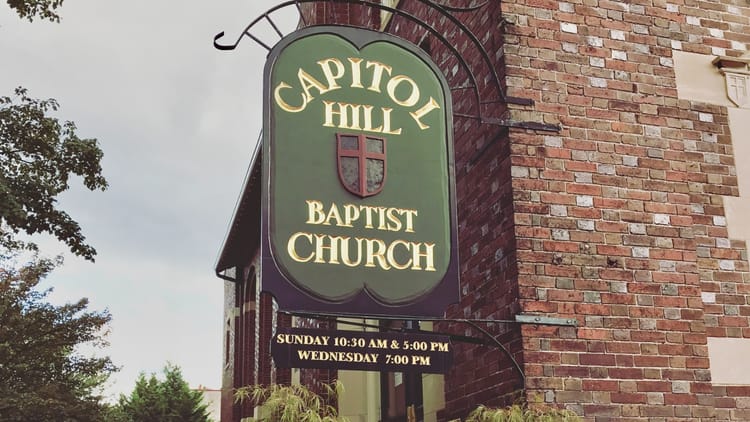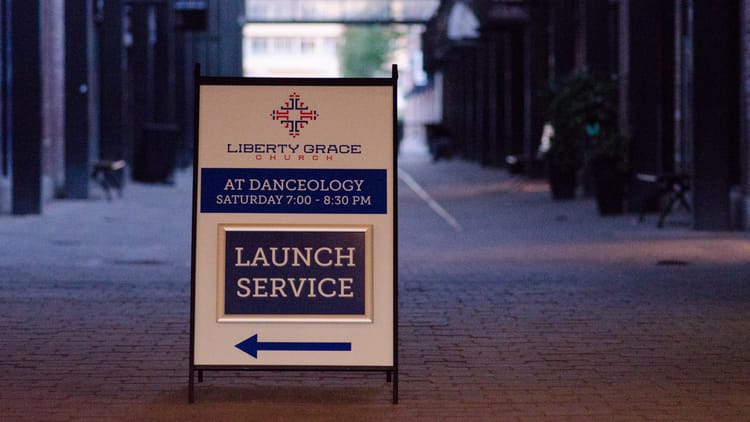The No-Hype Truth About Church Planting

Stephen Kneale seems to have touched a nerve last week. In his excellent blog Building Jerusalem, he wrote:
I am increasingly dubious of our use of the term ‘church planter’. I am, in fact, inclined to go so far as to say there is no such thing as a church planter…
I understand why the term is applied to those who have been sent off as leaders of core teams to establish new churches. But once you have sent a group of people, established regular meetings at which the Word is being faithfully taught and you are taking communion, why do we continue to call that a plant and the guy leading it a planter? It’s not a plant; it’s a church. He’s not a planter; he’s a pastor (or elder or whatever term your particular polity favours).
The whole post is worth reading.
Ryan Burton King has penned a helpful response:
Anyone who has been at all involved close up and personally with church planting should find the idea that “being a ‘plant’ is sexier than simply being another church” so bafflingly bizarre and contrary to their experience it beggars belief…
Far from dizzying heights, church planting is a dark garden of agonised prayer and weeping face down on a cold rock, a room of betrayal, a courtyard of condemnation, a path of suffering, and if there are dizzying heights to be had they are those of a cross on a hill overlooking a wayward and wicked people. There is much shame in it – sadly dished out by unsympathetic and resentful believers and hostile unbelievers alike. But as the seed goes down into the ground and dies, out of its rotted shell springs new life and with it a newly realised hope for lost people.
This is a great discussion. Both posts bring up great issues, and it’s important to talk honestly and openly about them.
Here’s my two Canadian cents (which may be worth less in your area, depending on the exchange rate).
Church Planting Is Trendy
There’s no doubt that Kneale is right: church planting has become trendy. When some of my friends planted churches ten or more years ago, they did so in relative obscurity. It was hard and often misunderstood. In the past decade, it’s become the thing to do.
On one hand, this is a good thing. I like to think that we’ve recovered a biblical emphasis that we’d temporarily overlooked. Sixty years ago, at least in my context, pastors moved to new neighborhoods and planted new works. Church planting was normal, and I don’t think it was glamorized. As these churches grew, they weren’t always concerned with starting new churches. I’m glad we’ve recovered this emphasis.
But we don’t plant because it’s trendy. We plant because church planting is a way to fulfill the Great Commission. Let’s never follow trends. Let’s resolve to plant in and out of season so that we’re planting even when the trends change, which they will. Plant because it’s biblical, not because it’s trendy.
Church Planting Is Temporary
I planted a church less than five years ago. I still call it a church plant. We’re holding regular meetings, but we are only now forming our first membership, and I’m the only elder on site so far. Our internal giving is growing, but we still rely on external support. I’d do it differently if I started again, but I still consider ourselves a church plant.
But we won’t be a church plant forever. Soon, by God’s grace, I want to drop the term church plant and become a church.
The words we use matter. Ecclesiology matters. If I started over, I would emphasize this more. Kneale is right to remind us, “Once you have planted a church, it is a church. Once you have established your plant as an independent church, you are no longer a planter but a pastor.” I’m a church planter, but only temporarily. It’s a joy when a church plant becomes a church, and a planter becomes a pastor.
Church Planting Is Hard
Anyone who wants to become a church planter should take a second look and remind themselves: church planting is hard. Count the cost, because it will be higher than you think. You will experience discouragement, frustration, and hardship. It will be slower and harder than you think. You will wrestle with insecurity and doubt. God will be at work, and it will all be worth the struggle, but make no mistake: it will be hard.
But why shouldn’t it be? In his sermon this past Sunday, Ray Ortlund said:
In a movie I saw about World War II, two American GIs are resting at a farm in France during a lull in the fighting. They’re leaning wearily against a stone wall at the farm. And one guy says to the other, “I’m gonna die! I just know I’m gonna die!” And his buddy says, “Well, why not? You somebody special?” Saving our precious hides is not our core value. The Bible says, “You have been given not only the privilege of trusting in Christ but also the privilege of suffering for him” (Philippians 1:29, NLT). We accept that privilege.
We’re nobody special. Why shouldn’t’ we suffer? Be prepared for the suffering involved in planting a church — but then remember it’s worth it.
That’s the unhyped truth about church planting. It’s trendy, temporary, and hard. Let’s talk about planting accurately and honestly. And then let’s get busy pastoring and planting together for God’s glory no matter the cost.






